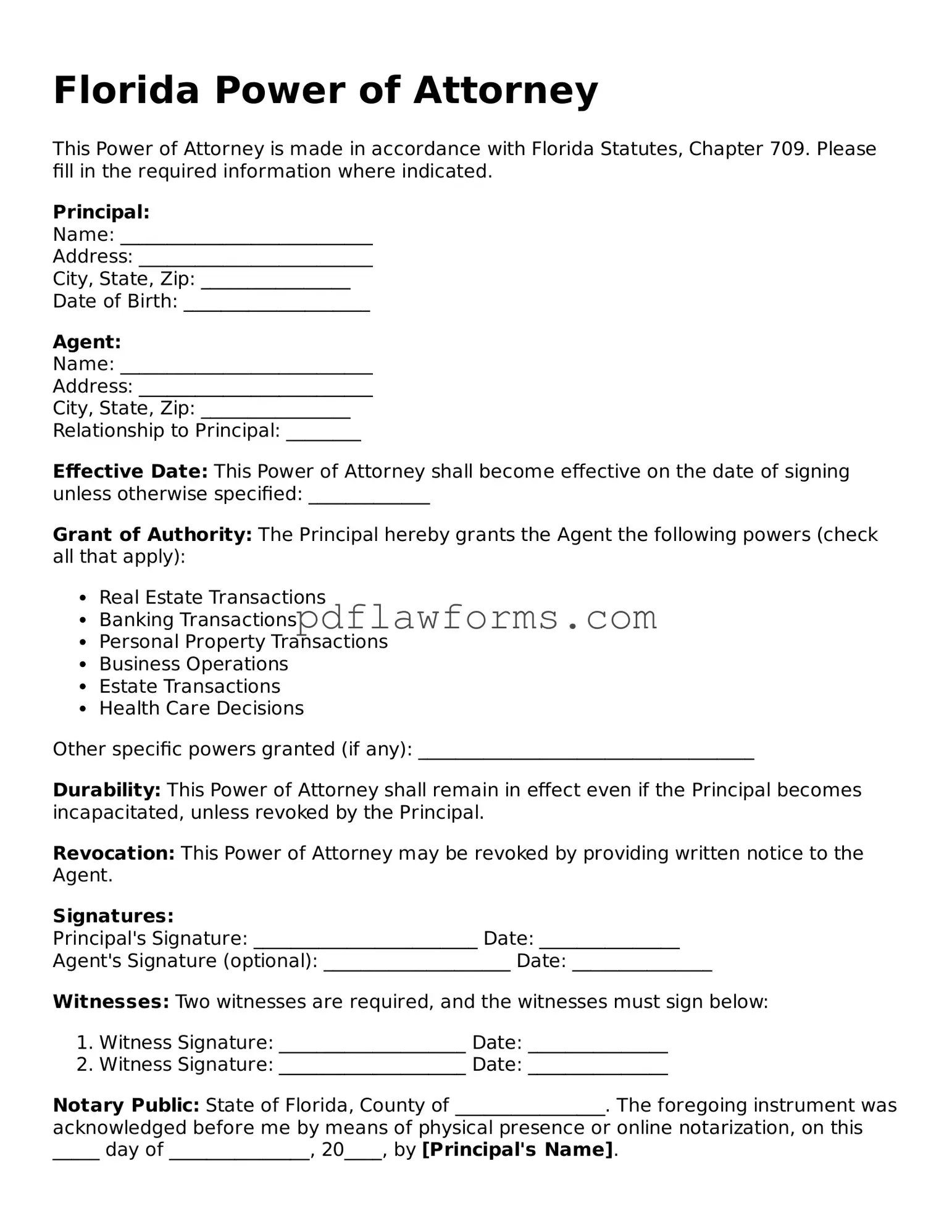Power of Attorney Form for the State of Florida
The Florida Power of Attorney form is a legal document that allows an individual to grant another person the authority to make decisions on their behalf, particularly in financial or medical matters. This form is crucial for ensuring that your wishes are honored when you are unable to communicate them yourself. Understanding the nuances of this document can empower you to make informed choices about your future; consider filling out the form by clicking the button below.
Make My Document Online

Power of Attorney Form for the State of Florida
Make My Document Online
You’re halfway through — finish the form
Edit and complete Power of Attorney online, then download your file.
Make My Document Online
or
⇩ Power of Attorney PDF
